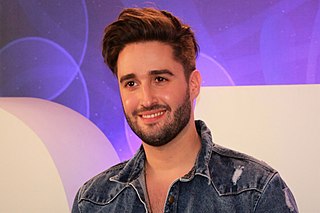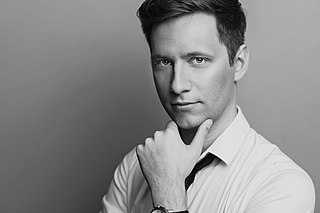V.I.P | |
|---|---|
| Origin | Hungary |
| Genres | |
| Years active | 1997-2001 |
| Labels | BMG |
| Past members |
|
V.I.P. were a Hungarian pop boy band founded in 1997 and dissolved in 2001, consisted of 4 members including 2 brothers.
V.I.P | |
|---|---|
| Origin | Hungary |
| Genres | |
| Years active | 1997-2001 |
| Labels | BMG |
| Past members |
|
V.I.P. were a Hungarian pop boy band founded in 1997 and dissolved in 2001, consisted of 4 members including 2 brothers.
They represented Hungary in the Eurovision Song Contest 1997 with the song "Miért kell, hogy elmenj?" ("Why Do You Have To Go?"). They tied for twelfth place with Greece with 39 points. One of them, Viktor Rakonczai composed the song Szívverés for Csézy, who represented Hungary in the Eurovision Song Contest 2008.
Their single in 1998, "Keresem a lányt", sampled NSYNC's "Tearin' Up My Heart".
In total, VIP released four albums. In 2001, the singers each decided to go their own way, and the boy band was disbanded.
Gergő Rácz
Gergő Rácz is a Hungarian composer, singer, producer, winner of the Phonogram award. He was born on 4 March 1976, in Budapest.
Imre Rakonczai
Imre Rakonczai is a Hungarian musician, composer, lyricist, brother of Viktor Rakonczai. He was born on 1 September 1972, in Budapest. He is also a footballer. He played for Ferencvárosi TC in 1982 until 1994.
Viktor Rakonczai
Viktoe Rakonczai is an EMeRTon award-winning Hungarian musician, composer, pianist, performer, brother of Imre Rakonczai. He was born on 16 October 1976, in Budapest.
Illés was a Hungarian rock/beat band (1960–1973), and was one of the biggest groups of the 1960s and early 1970s rock boom in Hungary. The band is often compared to the Beatles as regards the time period of its activity, its artistic and cultural influence and continuing popularity.

Zorán Sztevanovity is a Serbian-Hungarian guitarist, singer and composer living in Hungary.
"Miért kell, hogy elmenj?" was the Hungarian entry in the Eurovision Song Contest of 1997, and was performed in Hungarian by V.I.P..
Hungary participated in the Eurovision Song Contest 2008 with the song "Candlelight" written by Viktor Rakonczai, Jánosi and Imre Mózsik. The song was performed by Csézy. Songwriter Viktor Rakonczai represented Hungary in the Eurovision Song Contest 1997 as part of the band V.I.P. where they placed twelfth in the competition with the song "Miért kell, hogy elmenj?". The Hungarian entry for the 2008 contest in Belgrade, Serbia was selected through the national final Eurovíziós Dalverseny 2008: Magyarországi döntő, organised by the Hungarian public broadcaster Magyar Televízió (MTV). 15 entries competed in the national final where "Szívverés" performed by Csézy was selected as the winner based on the votes of a four-member jury panel as well as the votes from the public. The song was later translated from Hungarian to English for the Eurovision Song Contest and was titled "Candlelight".

Tibor Molnár was a Hungarian film actor. He appeared in more than 90 films between 1948 and 1982.

Zsuzsa Koncz is a Hungarian pop singer, whose lyrics were sometimes highly critical of the country's pre-1990 political system.

Péter Máté was a Hungarian pop singer, composer, and pianist. He was the composer and performer of nearly 150 songs, achieving cult status in Hungarian pop music.
Hungary was represented at the Eurovision Song Contest 1997 with the song "Miért kell, hogy elmenj?", composed by Viktor Rakonczai, with lyrics by Krisztina Bokor Fekete, and performed by the band V.I.P.. The Hungarian participating broadcaster, Magyar Televízió (MTV), selected its entry through a national final.
Hungary participated in the Eurovision Song Contest 2011 with the song "What About My Dreams?" written by Viktor Rakonczai, Gergő Rácz, Johnny K. Palmer and Péter Geszti. The song was performed by Kati Wolf. Songwriters Viktor Rakonczai and Gergő Rácz represented Hungary in the Eurovision Song Contest 1997 as part of the boy band V.I.P., placing twelfth in the competition with the song "Miért kell, hogy elmenj?". In December 2010, the Hungarian public broadcaster Magyar Televízió (MTV) announced that they would be returning to the Eurovision Song Contest after a one-year absence following their withdrawal in 2010 due to financial difficulties. The Hungarian entry for the 2011 contest in Düsseldorf, Germany was selected internally by MTV, and "What About My Dreams?" performed by Kati Wolf was announced as the Hungarian entry on 9 March 2011.
Hungary participated in the Eurovision Song Contest 2013 in Malmö, Sweden. The Hungarian entry was selected through a national selection format titled again A Dal, consisting of three heats, two semi-finals and a final, organised by the Hungarian broadcaster MTVA. ByeAlex represented Hungary with the song "Kedvesem", which qualified from the second semi-final of the competition and finished in 10th place in the final, scoring 84 points.
Imre Poniklo is a musician, best known as the lead singer, songwriter, lyricist and guitarist of Amber Smith. He is also a solo artist under the name Poniklo. As a singer, Poniklo's voice lies in the baritone range.
Hungarian pop is the pop music scene of Hungary. It is often associated with Rezső Seress's song "Gloomy Sunday" which was covered by numerous artists. The most notable artists include Zsuzsa Koncz, Kati Kovács, János Bródy, Zorán, Péter Máté and famous bands like Illés, Quimby, Republic,Locomotiv GT, Omega, Neoton Família. Among the new talents are Azariah, Krúbi, and Dzsúdló.

Alex Márta, better known by his stage name ByeAlex, is a Hungarian indie pop singer, songwriter, journalist, and novelist. He represented Hungary in the Eurovision Song Contest 2013 in Malmö, Sweden, with the song "Kedvesem", coming 10th in the final. In 2014 his debut novel Özséb, egy öngyilkos Miskolcon was published in Hungary.
Hungary participated in the Eurovision Song Contest 2014 in Copenhagen, Denmark. Their entry was selected through the national competition A Dal, organised by the Hungarian broadcaster Magyar Televízió (MTV). András Kállay-Saunders represented Hungary with the song "Running", which qualified from the first semi-final and placed 5th in the final, scoring 143 points. It is the second best position ever for Hungary, after 4th place in their debut year 1994.

Dov Viktor Király is a Hungarian singer and songwriter. In 2006, he was part of the Hungarian band Twinz with his twin brother Benjamin. In 2008, he became the fourth winner of the Hungarian music competition Megasztár. He is the younger brother of the Hungarian pop singer Linda Király.

X-Faktor is a Hungarian television music competition to find new singing talent. The fifth series was broadcast on RTL Klub in 2014. Bence Istenes presented his second series of X-Faktor. Róbert Szikora, Gabi Tóth and Róbert Alföldi all returned to judge the talent for the second time. Gábor Szűcs, a new judge joined them, replacing the original judge Péter Geszti.
Hungary participated in the Eurovision Song Contest 2015 with the song "Wars for Nothing", written by Áron Sebestyén, Boglárka Csemer and Sára Hélène Bori. The song was performed by Boggie. The Hungarian broadcaster Media Services and Support Trust Fund (MTVA) in collaboration with the Hungarian public broadcaster Magyar Televízió (MTV), organised the national final A Dal 2015 in order to select the Hungarian entry for the Eurovision Song Contest in Vienna, Austria. Following a six-week long selection process, Boggie emerged as the winner with the acoustic guitar driven ballad "Wars for Nothing". In the first of the Eurovision semi-finals "Wars for Nothing" placed eighth out of the 16 participating countries, securing its place among the 27 other songs in the final. In Hungary's thirteenth Eurovision appearance on 23 May, "Wars for Nothing" finished in twentieth place, receiving 19 points.

Gábor "Biga" Heincz is a Hungarian singer and performer, notable for being a finalist in A Dal 2012 and A Dal 2018.

Máté Bella is a Hungarian composer and university lecturer. He has received the Junior Prima Award, the Erkel Ferenc Prize, and the Béla Bartók–Ditta Pásztory Prize.

Lilla Polyák is a Hungarian actress and singer.